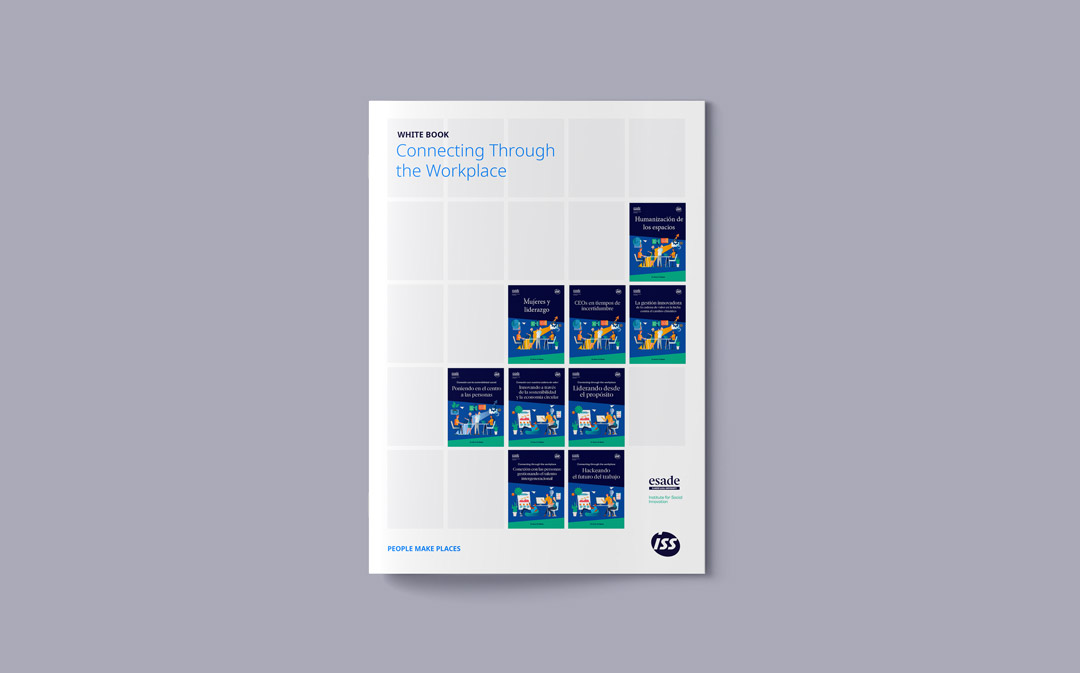Institute for Social Innovation
“Connecting through the Workplace” Collection

Over the last two years, Connecting through the Workplace, the lecture series organized by the Esade Institute of Social Innovation and ISS España, has had the privilege of creating spaces for inspiring, reflecting about and interacting with people, organizations and companies spanning a wide spectrum but with one feature in common: their humanity and desire to construct collaborative solutions for unprecedented challenges. Present-day and future leaders have helped us discover how to navigate today’s complex times of uncertainty. As a result of these encounters, we have made far-reaching conclusions which we will share with you in this compilation of publications produced during the series.
The speakers at these lectures have included more than thirty executives from such different areas as sustainability, human resources, production, procurement, digitalization, boards of directors and general management in sectors ranging from healthcare and technology to skincare, consulting, integral water management, food and others. When we realized that they face the same challenges, we understood how essential collective intelligence was in order to pinpoint innovative solutions.
The social contract has changed, and governance and leadership have been redefined in this new landscape. We therefore examined the importance of activating and integrating a corporate purpose that regards organizations as catalysts of shared value in this new era of stakeholder capitalism. We analyzed how leadership takes decisions in complex times of uncertainty, and how the presence of women in positions of responsibility and their participation in decision-making enrich organizations and make them more resilient and adaptable to change. As regards diversity and inclusiveness as creators of value, we have seen that when up to five different age groups come together in the workplace and contribute their different abilities, the outcome is greater creativity and innovation that also make an impact on the surrounding society. The resulting workspaces will be diverse and hybrid, therefore the analysis of the challenges that face organizations whilst going digital, in terms of organization, culture and skill sets, was another topic discussed during our conferences. The social and environmental sustainability of organizations, the ability to build respectful spaces by placing people at the center, and how to channel collaboration to solve the challenges of the climate emergency and promote the circular economy along the entire value chain were all given considerable attention during the discussions and lectures.
Crises undoubtedly offer opportunities to rethink, redefine and redesign how we live and work, and this is patently obvious in the workplace. The human factor is a cornerstone of the definition of tomorrow’s workplace of the future but is impossible without human-oriented leadership. Empathy and the ability to listen, putting people at the core, transparency, humility, collaboration and coherence, but also the ability to learn and unlearn, be courageous, have a strategic vision and to persevere when taking decisions that enable effective short-term management and make a positive long-term impact, are all basic traits of this leadership.
DOWNLOAD COLLECTION (Spanish Publication)
Thanks to the support and collaboration of ISS Facility Services.
Continue reading this article online:
See online